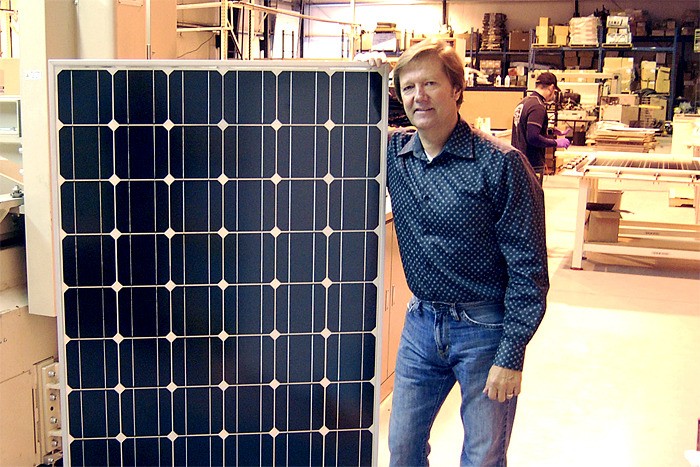Bainbridge Island’s city hall is looking to be a shinning example in an entirely new way after the city council approved a contract allowing solar panels to be installed on its roof.
The contract solidifies a relationship between the city and Community Energy Solutions in order to place solar panels on the roof of city hall on Madison Avenue. Through this agreement, the city will be able to lessen its energy costs while also making a public effort to be environmentally conscious.
“For city taxpayers it provides savings on money that would otherwise be used to pay electric bills,” Council Member Barry Peters said. “For a community that cares about the environment, it allows us to use less of coal-fired electricity that normally supplies our island.”
The city will own the property that the panels will be on, while CES will form a subsidiary, Community Solar Solutions, to purchase and manage the solar panel system.
City hall has three tiers of roof covering it — upper, middle and lower. The middle roof, the largest of the three, is where the solar panels will be installed. The roof faces south, which is an ideal orientation for the panels to collect light.
The panels will be constructed by Itek Energy, a company based out of Bellingham. A total of 309 photovoltaic panels will line the roof of city hall, with a capacity of 240 watts each. This puts city hall’s solar energy production just under the maximum 75 kilowatts allowed on a structure by law, according to Joe Deets, director of CES, and also president of the subsidiary CSS.
City hall will receive half the retail value of the energy furnished by the panels.
No charge
Deets said that the price tag on the project will run around $505,560 — or $1,633 per panel — and while it is difficult to say exactly when installation will begin, he is hoping that work will begin by March of next year.
“It is important to remember that this project will be 100 percent funded with private money,” Deets said. “The city will have no financial obligation, and in fact will receive rent from the project owners.”
CSS will pay for the panels through investors who will in turn receive benefits from state and federal incentives for using solar energy. Investors also receive a financial benefit from when the panels produce energy that is sold to Puget Sound Energy.
CES still seeks investors but Deets, an investor himself, is confident the project will be fully supported in time to install the panels.
At the conclusion of the contract in 2020, the city will have the option to purchase the solar panels, or have CSS remove them.
“It’s one of those rare opportunities to do something good for the planet that saves taxpayers money and creates an investment opportunity for the community,” Peters said.
Peters speaks from experience. He had panels installed on his own home and has been observing their benefits for four years.
“We have met almost 90 percent of our electricity needs over the past four years,” Peters said. “What people don’t realize is that our weather in the summer time gives us many months of solar energy, and our laws in the state of Washington allow us to bank the surplus in the summer so we can use it in the winter.”
Producing so much solar energy during months of adequate sunshine allows people such as Peters to do something called “net metering.” With net metering the excess energy is sold to PSE, who then holds that as a credit — ultimately lessening their power bill in the winter when solar panels aren’t as active.
“So solar works and it’s never been less costly than it is right now both in terms of the cost of the panels themselves and the incentives from the federal and state level,” Peters said.



